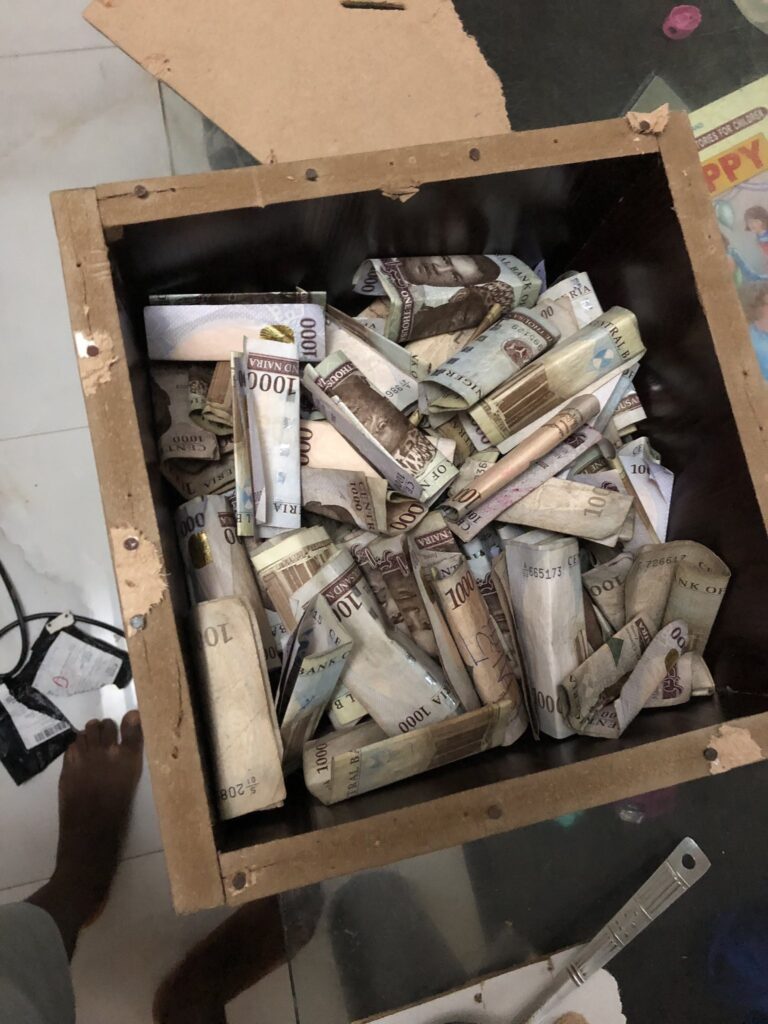
Are you tired of living paycheck to paycheck and wondering how to save money when everything keeps getting more expensive in Nigeria? You’re definitely not alone in this struggle. Every month, millions of Nigerians face the same challenge: trying to build savings while dealing with rising costs of food, fuel, rent, and other basic needs. With Nigeria’s minimum wage now at ₦70,000 per month, many people think saving ₦1 million is impossible, but the truth is different.
Learning how to save money effectively is a skill that can change your financial life, even if you earn what seems like a small salary. The secret is not about earning more money right away. It is knowing exactly where your money goes and making smart choices about how you spend it.
The reality is that most Nigerians who successfully save money don’t have special tricks or huge salaries. They simply understand the basic rules of money management and stick to them consistently. Whether you’re earning ₦70,000 as minimum wage or ₦200,000 as a mid-level professional, the principles remain the same. This guide looks at the 7 biggest strategies on how to save money fast and realistically reach ₦1 million in savings, even on a typical Nigerian salary. You’ll discover practical steps that work in Nigeria’s current economic situation, from cutting unnecessary expenses to finding extra income sources that don’t require special skills or connections.
1. Know Exactly Where Your Money Goes Every Month
The first and most important step in learning how to save money is to track every single naira that comes in and goes out of your pocket. You might be shocked when you see where your money actually goes each month. You might think you spend ₦10,000 on food, but tracking shows it’s actually ₦18,000 when you include those small snacks, drinks, and unexpected meals.
Start by writing down everything you spend money on for one full month. This includes your rent, transportation, food, airtime, data, clothes, entertainment, church offerings, family support, and even that ₦50 pure water you buy. Tracking your income and expenses is the foundation of successful money management for young Nigerians.
2. Use the 50-30-20 Rule Modified for Nigerian Reality
The classic 50-30-20 budgeting rule says to spend 50% on needs, 30% on wants, and save 20%. But for many Nigerians, this needs to be adjusted because basic needs often cost more than 50% of income. A more realistic Nigerian version might be 60-25-15 or even 70-20-10, depending on your income level.
For example, if you earn ₦150,000 per month and you use the 70-20-10 rule, you would spend ₦105,000 on needs (rent, food, transport). Then, ₦30,000 on wants (entertainment, fashion items, new gadgets), and save ₦15,000. That ₦15,000 saved monthly equals ₦180,000 per year. That’s 18% of your ₦1 million goal.
3. Cut Your Three Biggest Expenses Without Suffering
Most Nigerians spend the most money on three things: housing, food, and transportation. These are also the three areas where you can make the biggest savings without feeling like you’re punishing yourself. Focus on these big expenses instead of worrying about small daily purchases.
Practical Ways on Saving Money on your Housing:
- Consider sharing accommodation if you live alone. This can help reduce your rent by 50%
- Move slightly further from city centers where rent is cheaper, but calculate transport costs
- Look for places that include utilities in rent to avoid surprise electricity bills
Practical Ways on Saving Money on Food:
- Buy food items in bulk from wholesale markets
- Cook at home more often instead of buying food from restaurants
- Plan your meals for the week and stick to a shopping list
- Reduce consumption on fast food such as shawarma, and pizza.
Ways on Saving Money on your Transportation
- Use public transport instead of ordering rides for regular trips
- Walk short distances instead of taking transport
- Find colleagues to share transport costs for daily transportation
- Plan your errands to reduce multiple trips
4. Start the ₦100 Daily Challenge to Build Your Savings Habit
One of the best ways to learn how to save money is to start small and build momentum. The ₦100 daily challenge is perfect for beginners because it doesn’t feel overwhelming, but it adds up to significant money over time. Saving ₦100 every day for a year equals ₦36,500. This might be more than what many Nigerians have in their savings account right now.
You can make this challenge work by setting up automatic transfers if you use mobile banking or save in a piggy bank. Once ₦100 daily becomes easy for you, after 3 months, you can increase it to ₦200, then ₦300, and so on. Someone who successfully saves ₦500 daily will have ₦182,500 in a year. Combined with other savings strategies, this gets you much closer to your ₦1 million goal.

5. Use Technology and Savings Apps to Automate Your Success
There are apps that make it easy for you to save money without thinking about it constantly. These apps can automatically save small amounts for you, give you better interest rates than traditional banks, and help you avoid the temptation to spend your savings.
Popular Nigerian savings apps include PiggyVest, Cowrywise, Kuda Bank’s auto-save feature, and ALAT’s savings tools. Some of these apps offer interest rates of 10-15% annually, which is much better than traditional savings accounts that might give you 2-5%.

6. Find Extra Income Sources That Work with Your Current Job
Learning how to save money is important, but earning additional income can speed up your journey to ₦1 million. The good news is that many side income opportunities in Nigeria don’t require you to quit your main job or invest large amounts of money upfront.
With technology and social media, it’s easier than ever to earn extra money in your spare time. Someone who earns an extra ₦20,000 monthly from side activities and saves all of it will have ₦240,000 in additional savings per year. If half of the extra income is saved, that is #120,000 added to savings per year.
Realistic side income ideas may include online freelancing, selling products on social media or physically. You can also tutor students online or in person as a side income as well.
7. Build Your Emergency Fund First, Then Focus on the ₦1 Million Goal
Before you start aggressively saving toward ₦1 million, you need to have at least ₦50,000 – ₦100,000 set aside for emergencies. This might seem like it’s slowing down your progress, but it is actually protecting your bigger savings goal. Without an emergency fund, you’ll be forced to break your ₦1 million savings every time something unexpected happens. In a situation where you need funds for medical bills, or family emergencies, you do not want to take from your savings as it will affect your goal.
You can plan to have 3-6 months of expenses saved for emergencies. If your monthly expenses are ₦80,000, you should have ₦240,000-₦480,000 in emergency savings. This sounds like a lot, but you can build it gradually.
Emergency Fund Strategy
- Start with a goal of ₦50,000 in emergency savings
- Put emergency money in a separate account that’s not easy to access for daily spending
- Only use emergency funds for real emergencies, not for wants or planned expenses
- Once you use emergency money, make it a priority to refill the fund quickly
- After your emergency fund is complete, redirect that money toward your ₦1 million goal
Creating Your Realistic ₦1 Million Savings Timeline
The time it takes to save ₦1 million depends on your income, expenses, and how aggressive you want to be with your savings.
You can decide to save ₦20,000-₦25,000 per month if you earn ₦150,000 – ₦200,000 monthly. Between 36 – 48 months, you would have achieved your savings goal. If you earn more than #200,000, save ₦35,000 or ₦40,000 per month, and in a year or less than 2 years, you have one million naira.
In the case where you have side income and earn #300,000 or more, the practical way is to save ₦50,000 – ₦80,000 per month. In 12-15 months, you will have your #1 million savings goal. (In addition with savings from side income jobs).
To achieve these plans, you have to practice self-displined and delayed gratification.
Staying Motivated During Your Savings Journey
Saving ₦1 million is a long-term goal, and there will be times when you feel discouraged or tempted to give up. The key to success is staying motivated and celebrating small wins along the way. Find an accountability partner who is also working toward financial goals and regularly remind yourself why you want to save ₦1 million.
Common Mistakes That Stop Nigerians From Saving Money
Even with the best intentions, many people make mistakes that prevent them from learning how to save money successfully. Understanding these common problems can help you avoid them and stay on track toward your ₦1 million goal.
The biggest mistake is not starting at all because the goal seems too big. Many Nigerians think “₦1 million is too much for someone like me” and never begin saving. Another mistake is trying to save too much too quickly, which leads to frustration and giving up after a few months. Also, not having a separate savings account is a mistake that could hinder your goal. You might end up spending your savings on daily needs.
Other mistakes to avoid include borrowing money and comparing your progress to others instead of focusing on your own journey.
Conclusion
Learning how to save money fast and reach ₦1 million on a Nigerian salary is definitely possible, but it requires planning, discipline, and patience. The strategies in this guide work because they’re based on the reality of Nigerian incomes and expenses, not unrealistic advice from other countries.
Remember that the key to successful money saving isn’t about making huge sacrifices that make your life miserable. It’s about making smart choices consistently over time. Start with tracking your expenses and finding ways to reduce your three biggest costs. Use technology to automate your savings, look for additional income sources, and celebrate your progress along the way.
Your journey to ₦1 million begins today, with the decision to take control of your money and the commitment to stick with your plan, even when it gets challenging. Subscribe to SimplVest newsletter to get more engaging articles on money tips and productivity tips.












